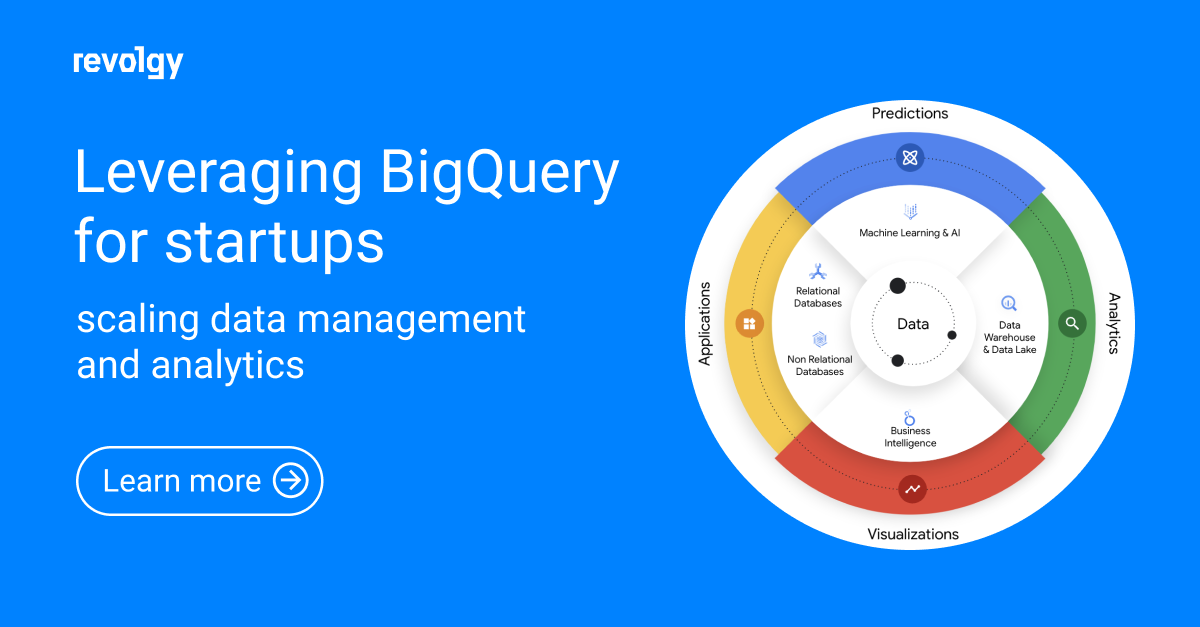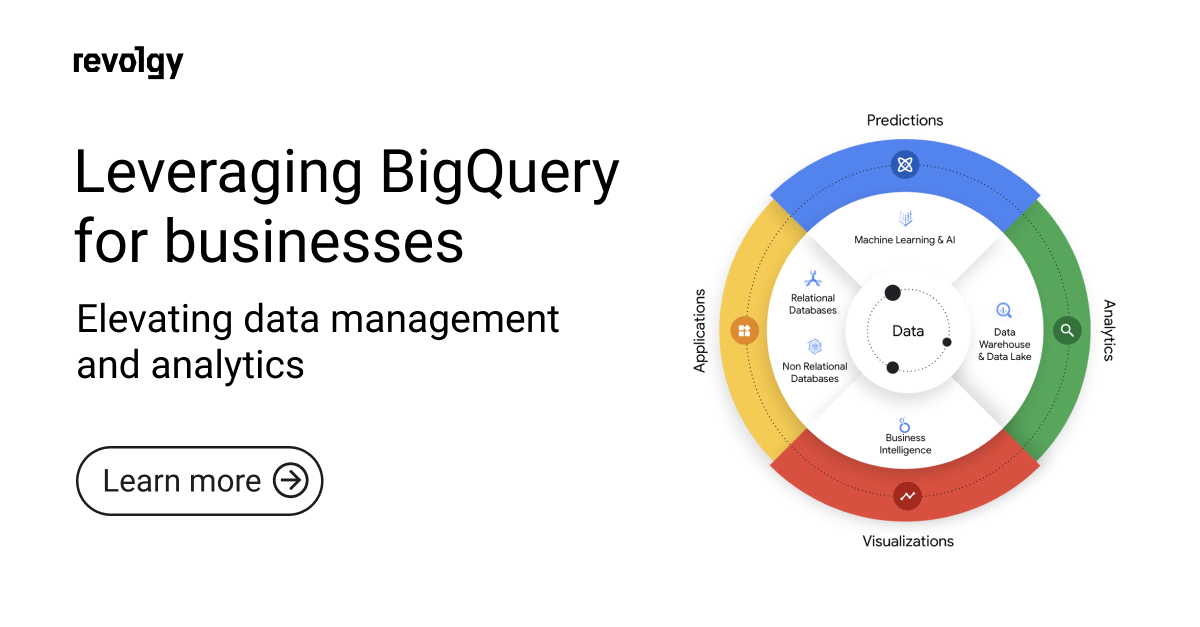GCP, Cloud Platform Services
An overview and benefits of data lake vs. data warehouse
When it comes to the big data universe, a couple of terms come up often — data lake and data warehouse. And lately, we’ve got this new kid on the block called a cloud data warehouse. Let’s look at the difference between a data lake and a (cloud) data warehouse, and their unique benefits below.
A data lake overview
A data lake is a vast pool of raw data, the purpose of which is to store data in its native format until it is needed. Think of it as a large-scale storage repository and processing system where data can flow in from various sources and be stored indefinitely.
Benefits of a data lake
- Versatility: A data lake stores all types of data — structured, semi-structured, and unstructured. This allows businesses to consolidate disparate data sources into a single, centralized repository.
- Scalability: Data lakes are designed to handle high volumes of data. They can scale quickly and efficiently to accommodate large amounts of data from various sources.
- Advanced analytics: The raw, granular data in data lakes allows for more complex and advanced analytics like machine learning and predictive modeling.
A data warehouse overview
A data warehouse is a large storage repository that uses a relational database system for analyzing structured, filtered data. It’s a system that sorts, organizes, and makes data searchable by specific attributes. Data warehouses are structured to serve specific business needs and are often used for business intelligence activities.
Benefits of a data warehouse
- Structure and organization: Data warehouses store data in a structured and organized manner, which can make it easier for businesses to access and understand their data.
- Performance: Due to the organized nature of data warehouses, they often provide faster query performance than data lakes, making them ideal for complex queries and analysis.
- Business intelligence: Data warehouses are designed to help businesses make informed decisions. They provide a way to analyze historical data for trends, forecasts, and insights.
What is a cloud data warehouse?
A cloud data warehouse is a service that collects, organizes, and often stores data that organizations use for analysis and reporting. This type of data warehouse is hosted on a cloud platform, making the data accessible over the Internet. Cloud data warehouses are designed to handle large volumes of data and offer real-time analysis and insights.
Benefits of a cloud data warehouse
- Scalability: These warehouses can automatically adjust to data demands, ensuring enough resources for your data needs.
- Cost-efficiency: With a pay-as-you-go model, you only pay for the resources you use, reducing costs compared to traditional data warehouses.
- Accessibility: Data can be accessed from anywhere, benefiting businesses with remote teams or multiple locations.
- Performance: Cloud warehouses efficiently handle large volumes of data and complex queries, improving response times.
- Integration: They can connect with various data sources and are compatible with different data analysis tools.
- Security: Reputable providers offer strong security measures and comply with industry standards and regulations.
- Low maintenance: The service provider handles most maintenance tasks, freeing up your IT resources.
Data lake vs. data warehouse: which one do you need?
Choosing between a data lake and a data warehouse depends on your business needs. Suppose your organization handles a vast amount of raw, unstructured data and needs a flexible, scalable solution for storing and analyzing the data. In that case, a data lake might be the right choice.
On the other hand, if your business requires structured, organized data for specific queries and reports, a data warehouse might be a better fit. Data warehouses are ideal for businesses that need to analyze historical data for business intelligence purposes.
In many cases, businesses can benefit from using both a data lake and a data warehouse. Each serves a unique role in data storage, complementing each other to meet a company’s varied needs.
Find out more about Google Cloud’s BigQuery, a fully managed, serverless enterprise solution for data warehousing. Are you considering moving to the cloud? Let’s have a chat and discuss how we can work together to make it a smooth switch!



